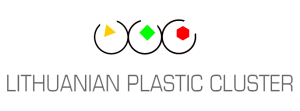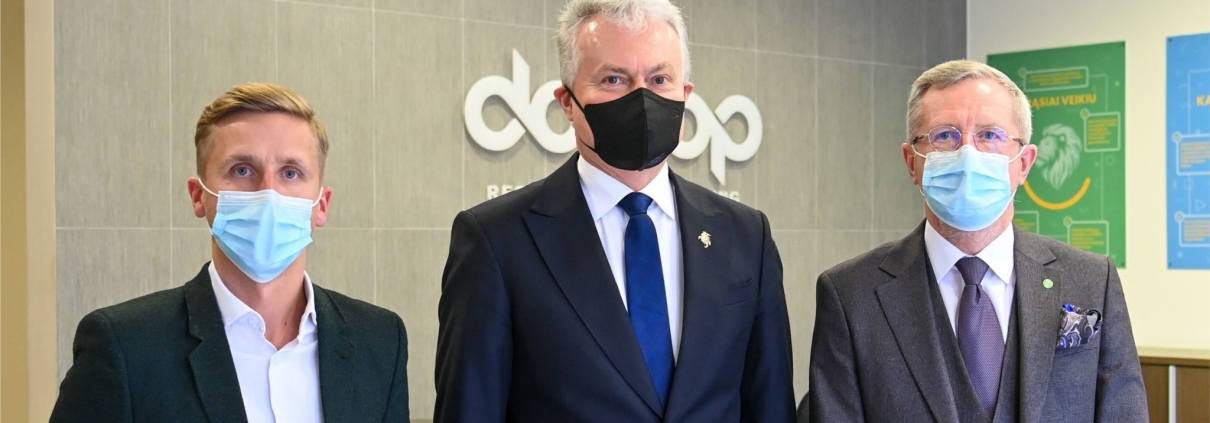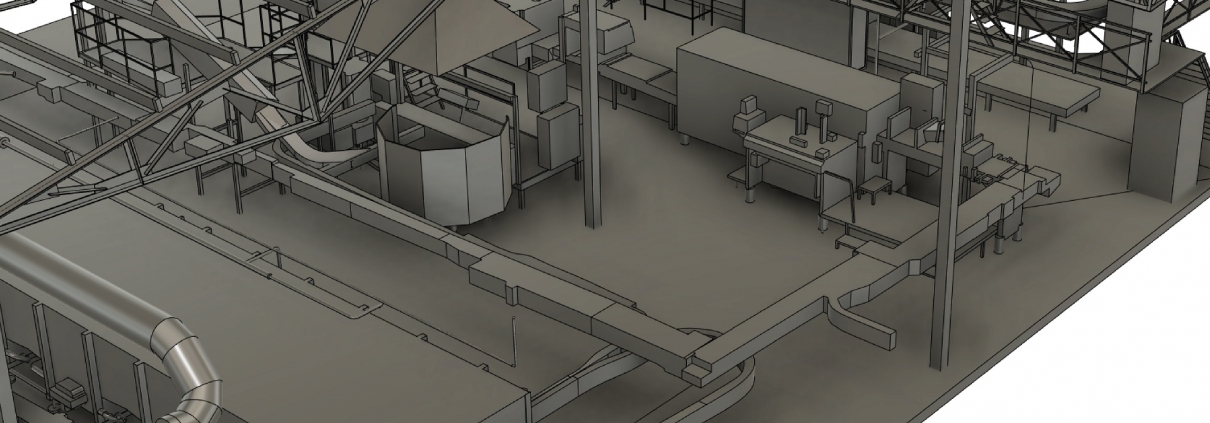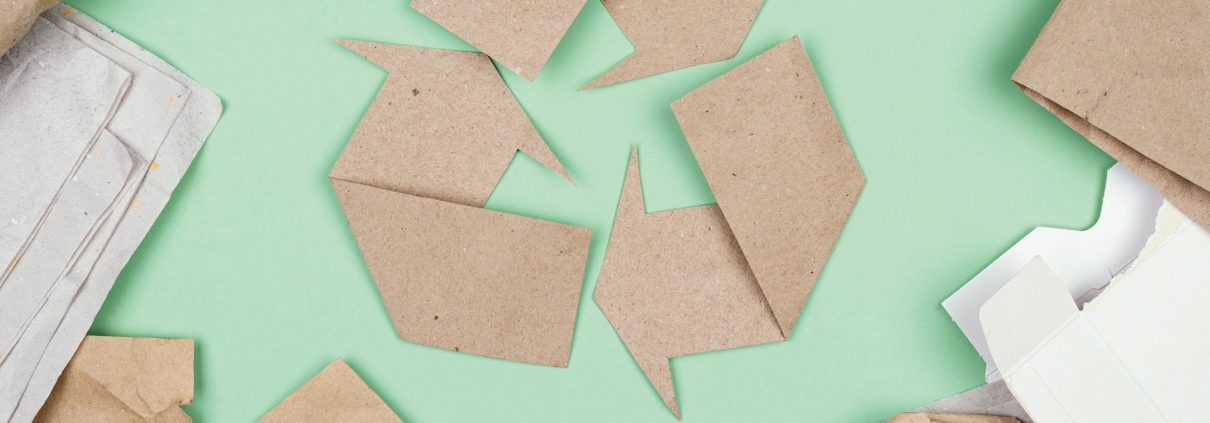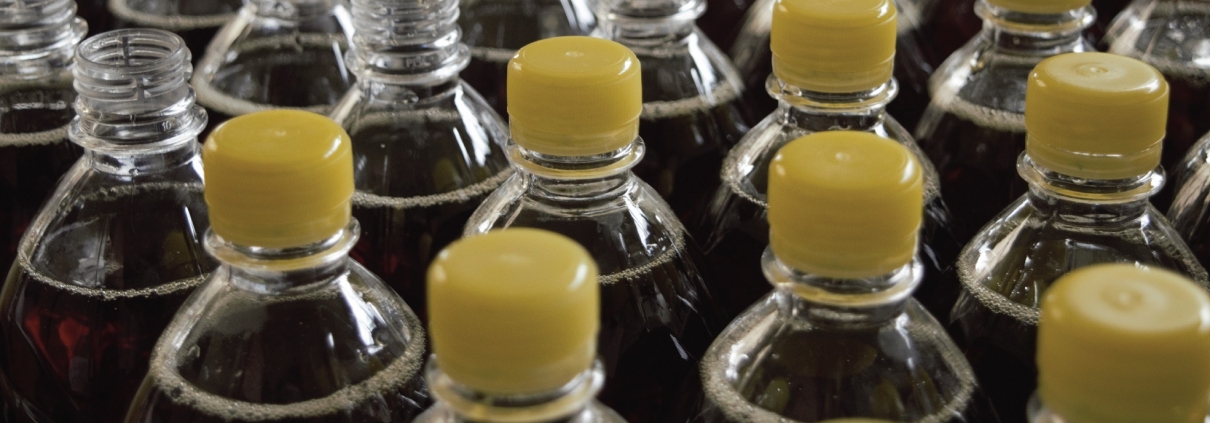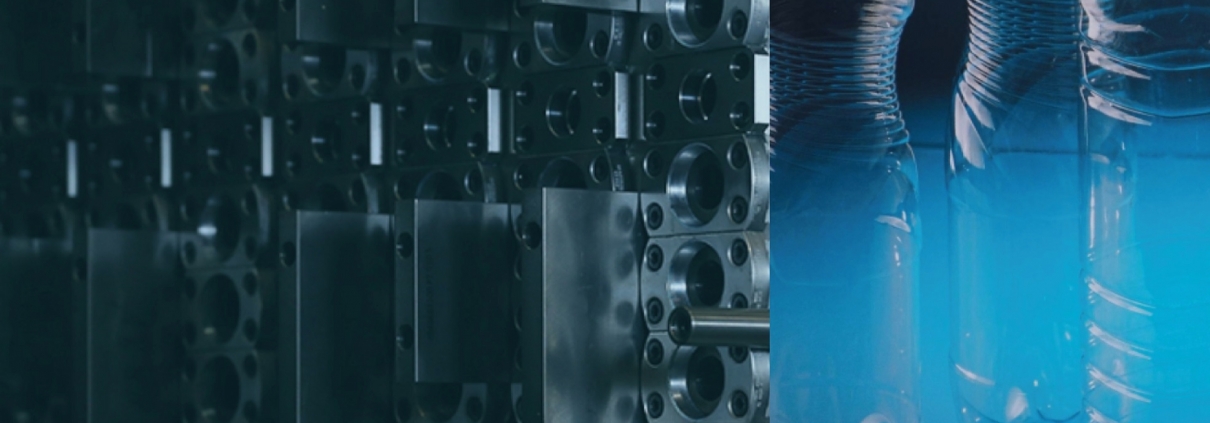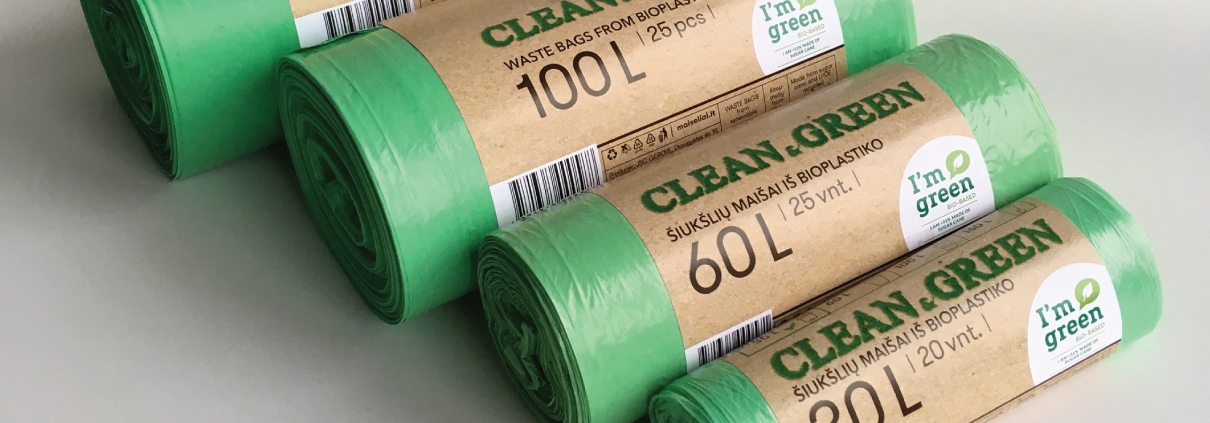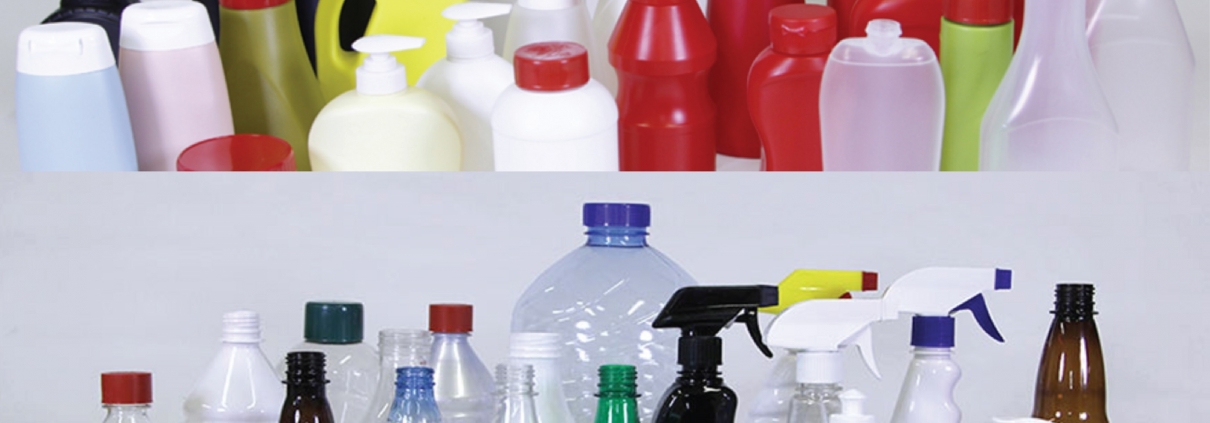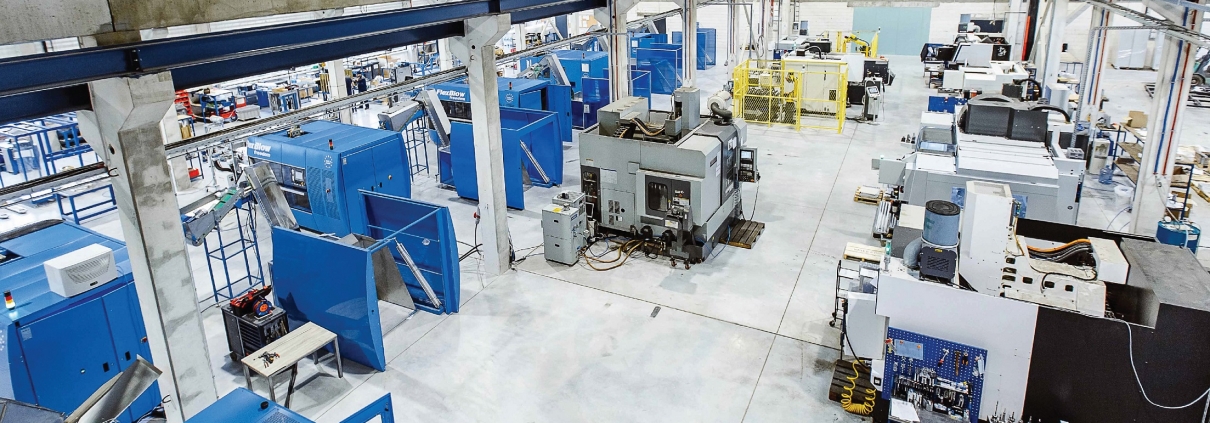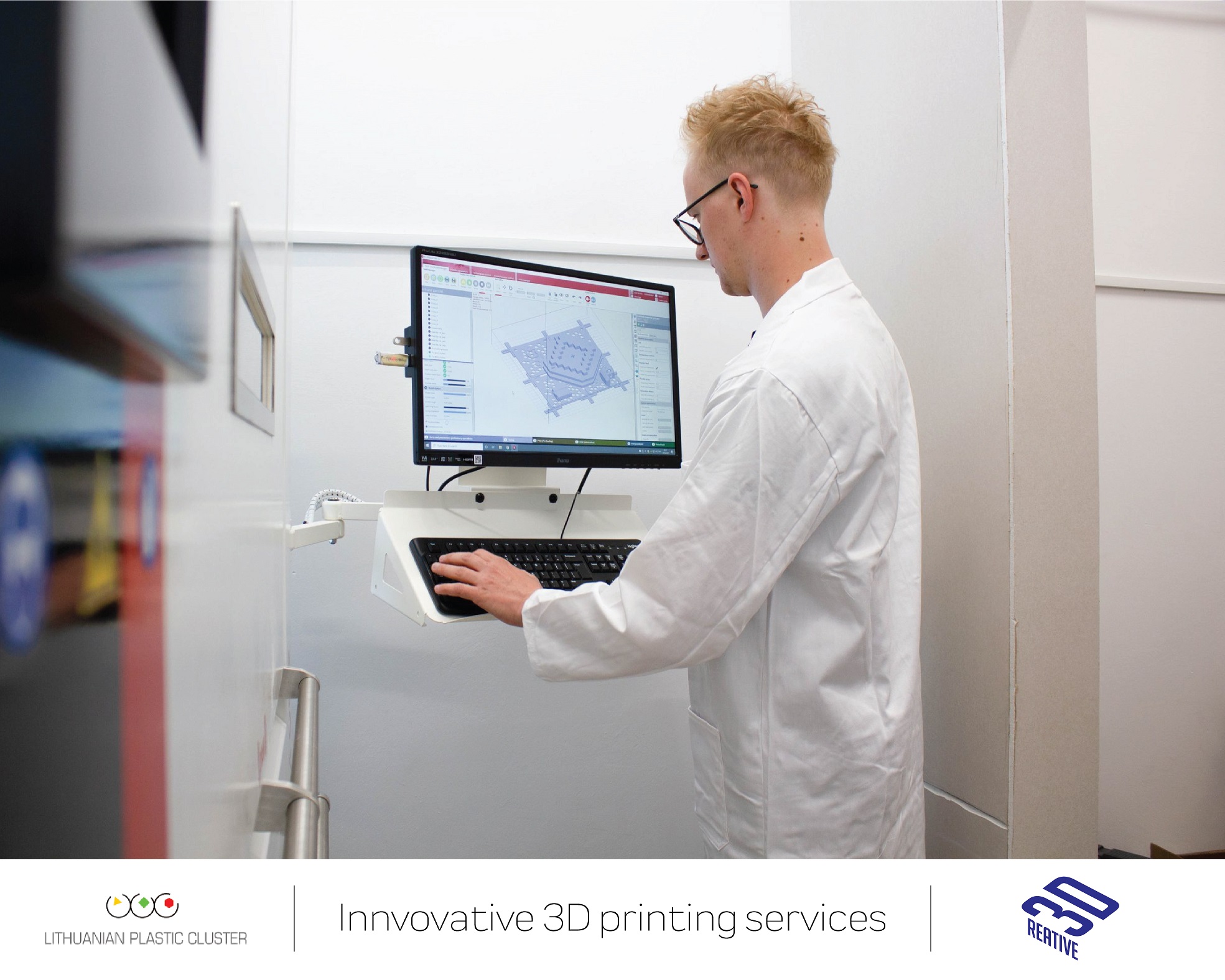The year 2021 was quite good for businesses in the Lithuanian plastics industry even though they faced significant challenges. In 2020–2021, Lithuanian producers, just like companies all over the world, experienced raw material shortages; prices were rising rapidly. Competing on international markets and finding new customers became more difficult. Still, Lithuanian businesses made sizable investments in equipment and innovation, succeeded in expanding and increasing their turnover, and were bravely planning next phases in their development.
A successful growth of the companies in the Lithuanian Plastic Cluster was observed in 2021. One of these companies that operates in Šiauliai and Vilnius – Putokšnis, a producer of PET pre-forms and PET bottles – has become DOLOOP. The company decided to change its brand name to better reflect its focussing on sustainable production and zero-emission packaging solutions. The company’s strategic objectives are to apply energy and raw material efficiency solutions in its productions processes and to create products of eco-innovative design.
In 2021, the company’s production volumes were almost 1.5 billion of PET pre-forms and approx. 35 million of PET bottles. This year saw an enlargement of the range of sustainable packaging solutions offered and an introduction of the PET film product. The company’s clients include well-known beverage producers, both international and domestic. 90% of the company’s products are exported to over 20 countries of the world including Germany, Norway, Finland and Sweden. In 2020, the company’s turnover totalled EUR 46.3 million and net profit was EUR 2.09 million. As of October 2021, the company employed 157 people.
3D Creative has put into operation fifty state-of-the-art 3D printers in 2021. The company is implementing (jointly with Vilnius University and Kaunas University of Technology) an innovative project on the use of soya beans as a 3D printing material, for which a patent is being sought. This environmentally friendly project links the 3D printing technology to the circular economy and reduces the use of fossil fuels in the production of raw materials as waste generated in the production of foodstuffs from soya beans is reused.
The company plans to increase its turnover by more than 60% in 2021 as compared with 2020. It is important that the result is expected to be achieved without increasing the number of employees: human resources are used more efficiently – due to employment of LEAN and AGILE platforms, work is focussed on operations and services of higher value added.
‘The calendar change from one year to another should not bring up ‘tectonic faults’ – we expect that the growth in both turnover and exports will be in double-digit figures. This will be achieved through investments in industrial equipment and introduction of new unique materials to satisfy the growing demand’, says Saulius Lileikis, the company’s CEO.
Frilux UAB is another company that can report success in the year 2021. According to its CEO Aurimas Bulkšas, this year the company acquired as many as four new plastic casting machines in order to increase both efficiency of operations and competitiveness on the global market. As most companies in the plastic sector, Frilux UAB faced the challenges of raw material price increases and much longer order fulfilment periods. ‘Raw material prices were growing at a pace higher than our price increases, and our clients were sensitive to these changes’, says Aurimas Bulkšas. Despite market uncertainties, the company is projecting a turnover of approx. EUR 15 million.
Rimantas Damanskis, CEO of Pack Klaipėda UAB, speaks about projects of 2021 with an emphasis of social responsibility, pointing out that the company has invested over EUR 5 million in development and protection of the environment. Plastic recycling and circular economy principles in production processes are strategic lines of Pack Klaipėda UAB. New process equipment installed enables the use of 30% of recycled polystyrene in packaging products thus contributing to the circular economy. The company employs a technology of reducing the weight of packaging, with 95 % of air and just 5 % of plastic in the product. As a result, the company has minimised the CO2 emissions of its packaging products. Pack Klaipėda UAB is planning an approx. 12 % growth compared with 2020.
Terekas UAB operating under the FlexBlow brand name was selected as Lithuania’s Exporter of the Year for the tenth time in a row. The company has succeeded in increasing its production capacities almost 20% and has enlarged its service and distribution network – now it covers Europe, the US, Saudi Arabia and Japan. On its website, the company offers an enhanced 24/7 service for customers including direct video support, monitoring, supervision and system updates. Apart from its core activity, FlexBlow has started, in cooperation with scientists, the development and production of innovative plastic face shields. The company managed to increase its R&D capacities at the peak of COVID-19 pandemic and opened a new factory 3,200 m2 in area at the end of 2020. Part of the factory is designed for engineering, prototype development and testing, and the other part is intended for production. All manufacturing processes are automated, with enhanced in-house form production and development of containers and pre-form prototypes. The innovative solutions have enabled the company to offer exclusive products and services for clients in the bottling and packaging industry.
It is probable that companies of the Lithuanian Plastic Cluster will encounter challenges in 2022 due to insufficient raw material supply and growth in prices, however, heads of the companies unanimously assert their intentions to continue sensible phased development in future.
